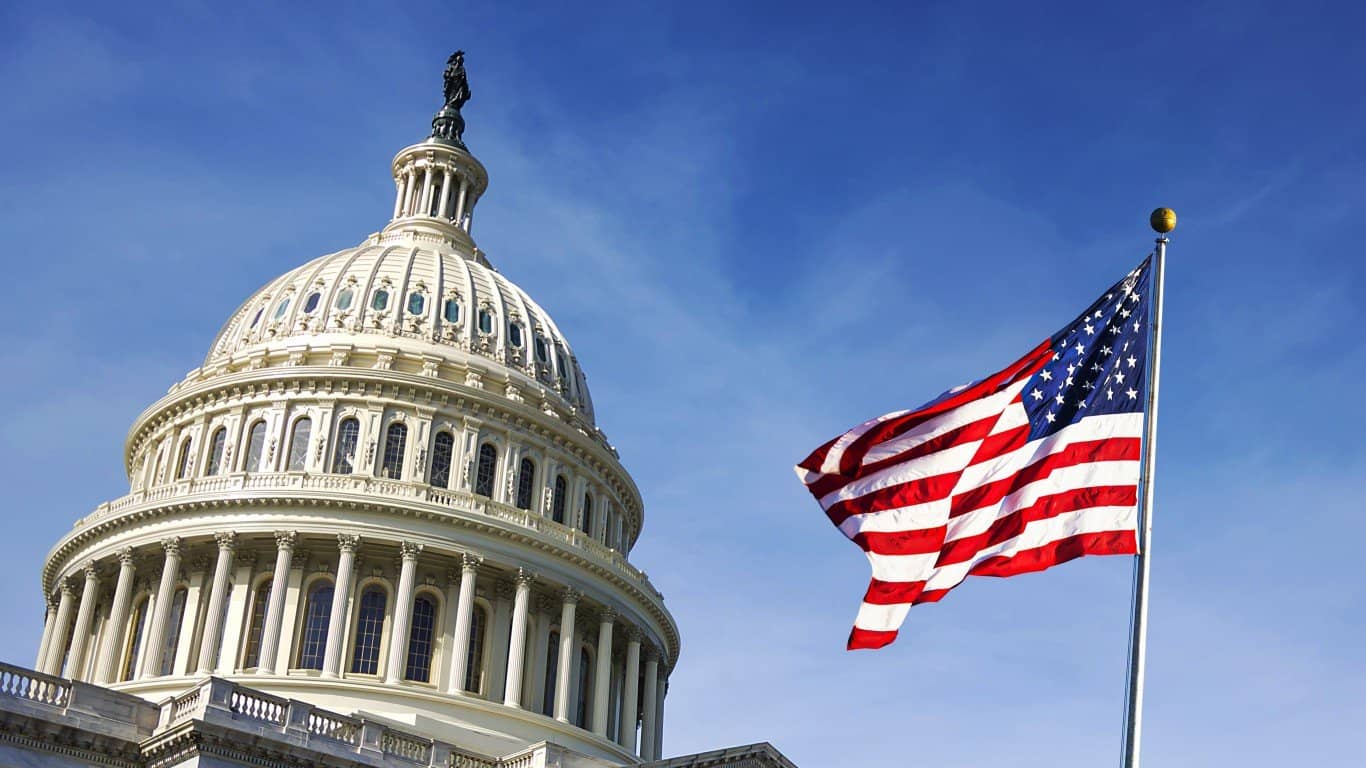George Orwell said it best in his 1949 cautionary novel, “1984”: Big Brother is Watching You. To this day, Orwell’s phrase rings true for many people who feel the United States government is always surveilling them, and they may not be all that wrong. In today’s society, there is information readily available to just about everyone and it’s not data you want everyone, especially a government agency, to know.
According to the Pew Research Center, the majority of Americans believe it isn’t possible to go through life without being tracked. Whether a private company or the government, a vast majority believe these entities are collecting data on them daily. If you think the government collects a lot of data, you may be correct. From the community level to the federal level, information on U.S. citizens is constantly being gathered.
Our regular daily activities are being monitored and oftentimes you don’t even think about it. From our mail deliveries and our driver’s licenses to our voter registration and our online shopping habits, you’re providing information about yourself and possibly your family, to a government organization.
Laws regulate who can access much of that data, including whether it can be shared with law enforcement or between federal agencies. Recently, there has been an increase in inter-agency collaboration, permitting different government entities to combine data and build more detailed personal profiles than each division could have accomplished on its own.
As your information spreads to more than one agency the likelihood that it will be mishandled increases. Identity theft has become much more common with the widespread use of the internet. Even though victims can be targeted from across the globe, reports of this kind of crime are not evenly dispersed across the country.
While some people don’t give their data a second thought, others tend to worry about the Big Brother effect of governmental data gathering. A lot of our info is given willingly, whether sharing on multiple social media platforms, accepting privacy policies and terms of service, or applying for credit or college. It doesn’t matter who we share our data with, the odds are someone is collecting it. Although many companies have privacy policies, these guidelines don’t always hold up.
The government may have guidelines they follow but others who have access to commercial databases with your information can use them at their discretion. This includes providing any and all of your details to law enforcement and intelligence agencies, at times without a warrant or court order.
When tracking down criminals, data sharing can be a positive thing, but for those law-abiding citizens, not so much. Innocent purchases and purchases, research projects, ironic or sarcastic comments, and even awkward auto-corrects could seem to add up to something they do not.
We have detailed some ways the government has access to your personal data and how the various agencies go about acquiring it. Some of it can make you realize that George Orwell may have been on to something.
1. Social media posts

In 2012, in response to a lawsuit filed by the Electronic Privacy Information Center, the Department of Homeland Security admitted to searching for keywords while monitoring sites such as Facebook and Twitter for at least 18 months. In 2018, DHS alerted First Amendment activists by proposing a program to track, monitor, catalog, and mine content posted by social media influencers.
2. Email history and transcripts

Section 702 of the Foreign Intelligence Surveillance Act permits government entities such as the National Security Agency to monitor people’s communications in the U.S. and beyond without a warrant. Emails of Americans not targeted for surveillance can be gathered as byproducts of other investigations, a privacy violation at best.
The idea behind keeping an eye on communications relevant to U.S. foreign affairs is to protect national security. However, thanks to a loophole, virtually anyone can be monitored, this includes journalists, lawyers, human rights activists, students, and more.
3. Browsing history
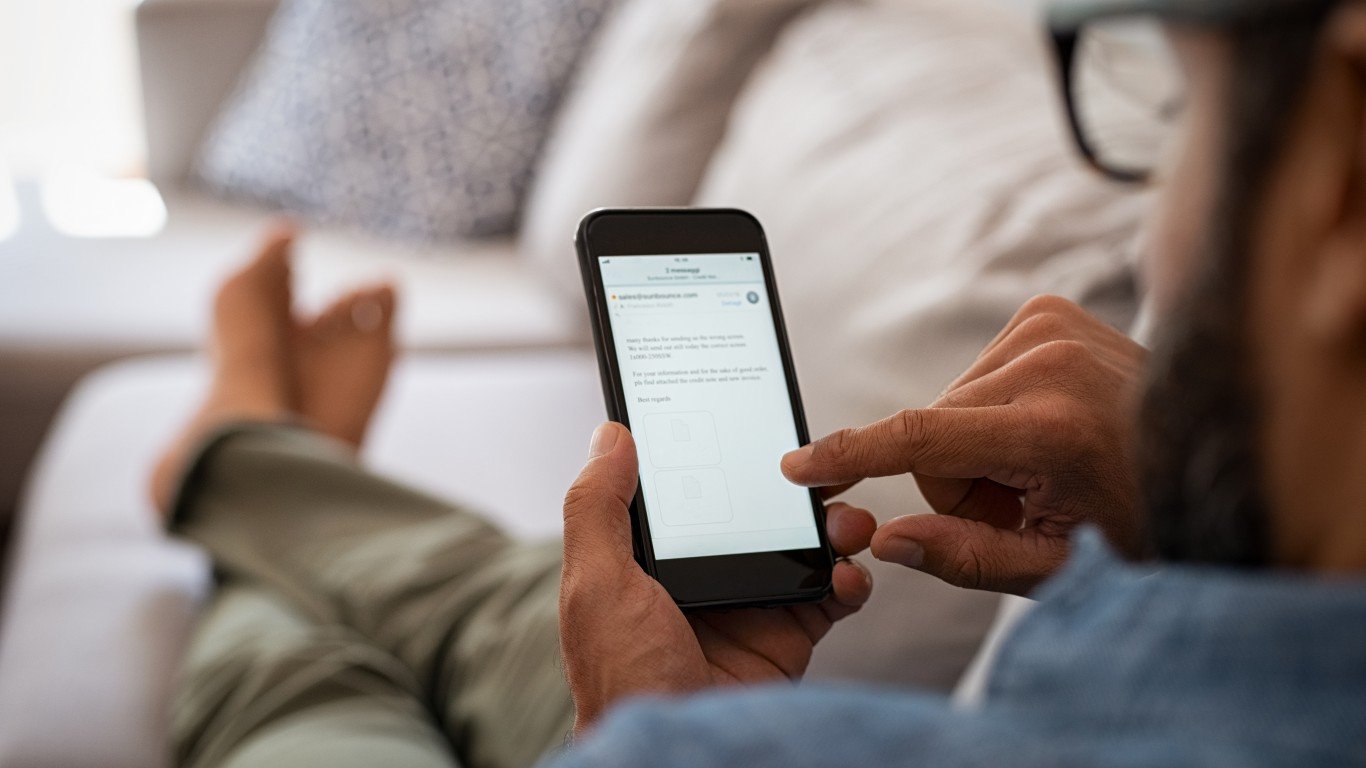
Government agencies, including the FBI and the National Security Agency, have been curious about what we view on our laptops and desktops for quite some time. Internet privacy rules set up by the Federal Communications Commission (FCC) were intended to cap what companies can do with customers’ information – including their app usage history, browsing habits, location data, and social security numbers.
This internet privacy law was repealed in 2017, allowing telecom companies to now collect and sell their customers’ private online usage information. The repeal is said to be a boon for targeted advertising, but there’s nothing to block broadband companies from selling data to the highest bidder.
4. Exact location
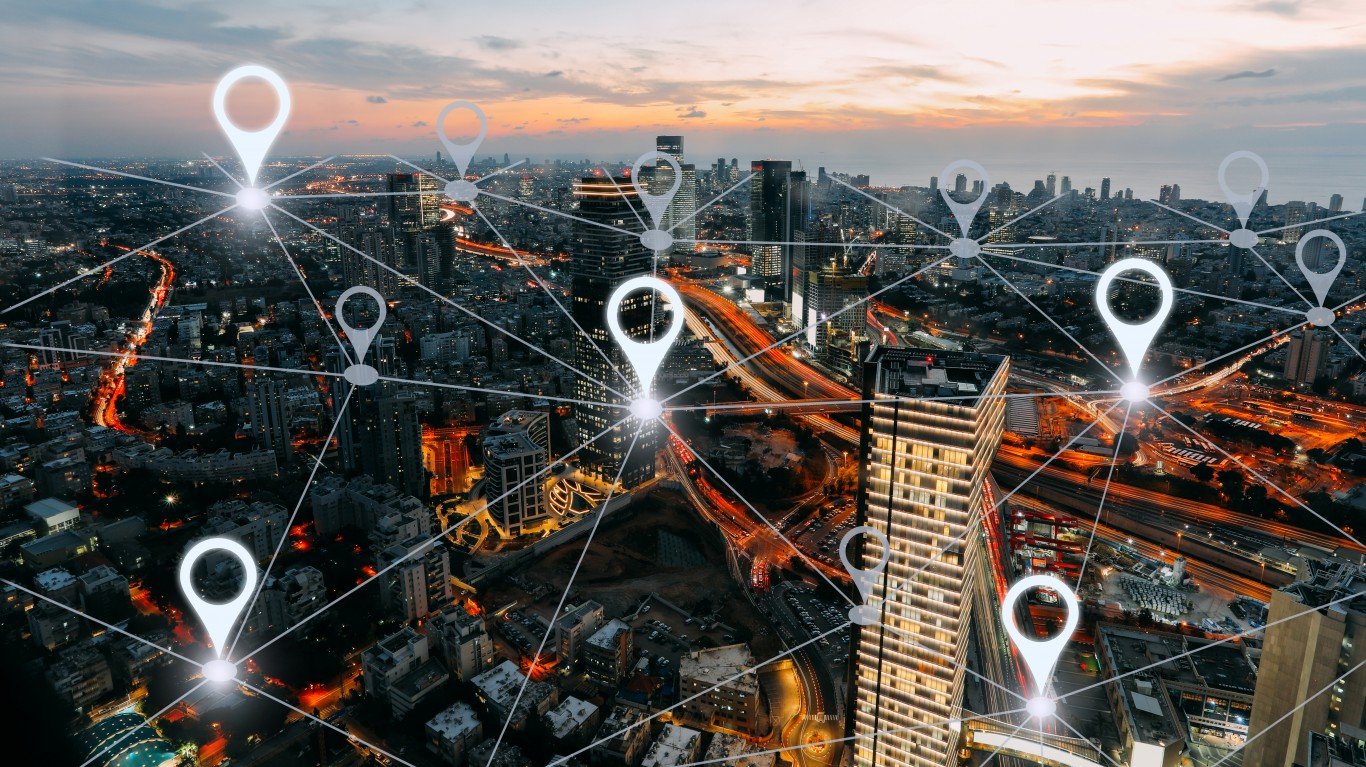
Thanks to a 2012 Supreme Court ruling, law enforcement agencies are not permitted to put a GPS tracker on someone’s vehicle without a warrant. However, as a result of our cars and our phones, most of us have a GPS tracker on us at all times. Since the U.S. government owns the Air Force-operated navigation system, we’re constantly trackable by these agencies.
Wi-fi networks and cell towers within range of your GPS-bearing devices, even if turned off, can still be pinged, revealing where you are. It may be a good idea to rethink allowing any apps access to your location data. As this third-party data is no longer private, it can be obtained without a warrant.
5. Charitable donations
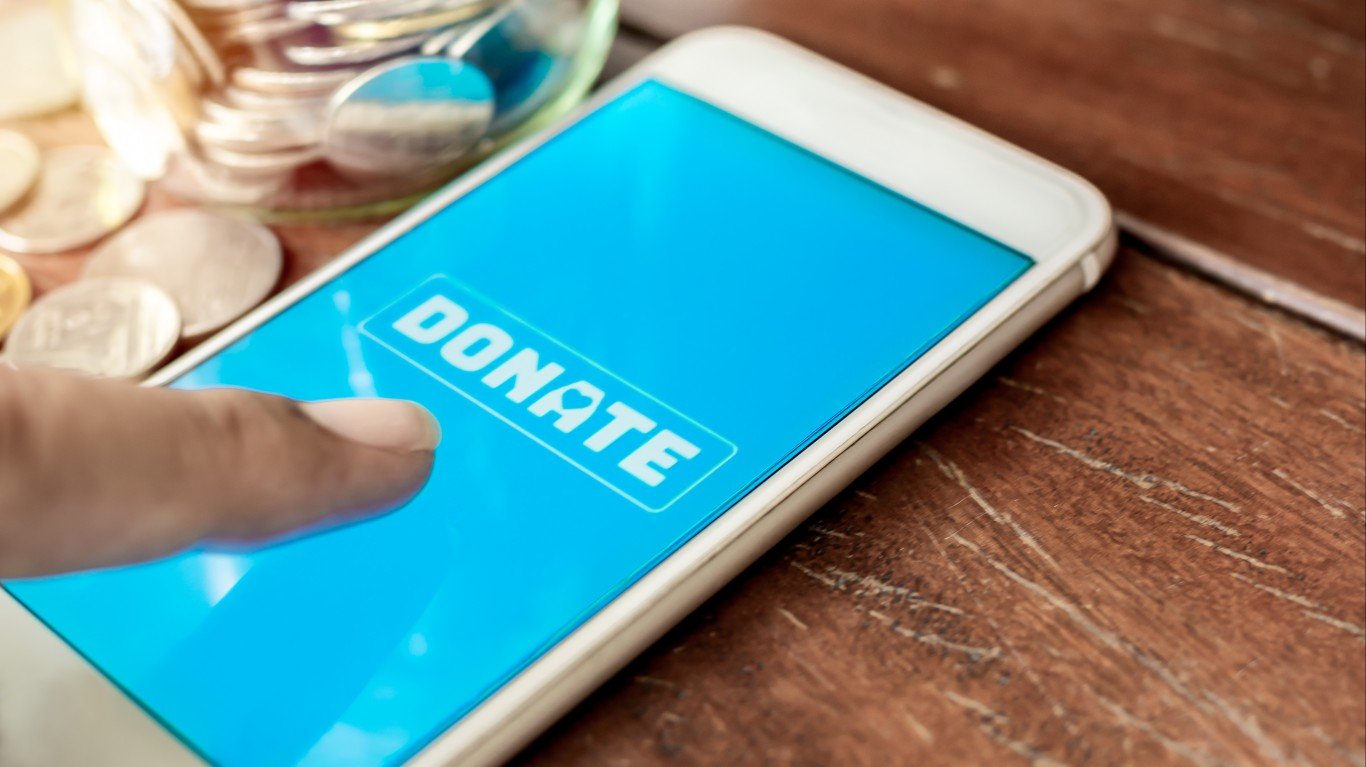
Our charitable contributions are made known to the Internal Revenue Service (IRS) when we itemize our tax returns. Additionally, charities are also required to file a Schedule of Contributors (Form 990, Schedule B) which lists contributions received and has the names and addresses of all donors. This information can then be shared by the IRS with other law enforcement agencies if they have a court order.
Certain not-for-profit agencies were exempted by the Treasury Department from revealing the names and addresses of donors. According to a press release, “the IRS makes no systematic use of Schedule B concerning these organizations in administering the tax code.”
6. Drone images of property and home

We’ve all become accustomed to sites like Google Earth and Zillow.com viewing our homes, but it may come as a surprise to learn that police don’t need a warrant for anything they can observe from public airspace. With the use of drones, they are able to glimpse your property, be in your home, business, or car.
The Fourth Amendment protects us against unlawful searches and seizures in cases where people have “reasonable expectations of privacy.” As drones become more common and we grow accustomed to the aforementioned Zillow and Google depictions of our dwellings, are we losing the right to reasonably expect even the slightest bit of privacy?
7. Credit limit and outstanding debt

Credit agencies have a large amount of our data. They can gather a vast amount of financial information on our lives as they possibly can. Whether how much credit we have, how much we want, or how much we’ve been offered, they know it. These same agencies also know how much debt we may be saddled with and how often we are on time or late with payments.
With this collection of information, these agencies can, and do, make it available to anyone willing to purchase it. Banks, credit card issuers, auto lenders, employers, and more can access your data for the right price. The U.S. government is also able to obtain your information from credit bureaus without a court order.
8. Online purchase history

Agencies like the FBI and the NSA can have a hard time getting permission to spy on U.S. citizens. However, they can get private companies to share your information with them. It may be a general query, such as the names of all those who ordered a specific product in a certain timeframe, or they can be more targeted, requesting all purchase information from one particular customer.
Although many companies have policies about how much they’re willing to share with law enforcement without a court order, you should check terms and conditions for details.
9. Video and music history

Each time we visit a website or online store to make a purchase, we often have to agree to the terms and conditions. In our haste to check out a certain site, or make a certain purchase, we may be consenting to more than we realize. Websites, search engines, and ISPs can collect an awful lot of data that we don’t give a second thought to, such as our video and music download history. Government agencies can ask online vendors to share the information they routinely gather, and some will do so without a court order.
10. History of garnished wages
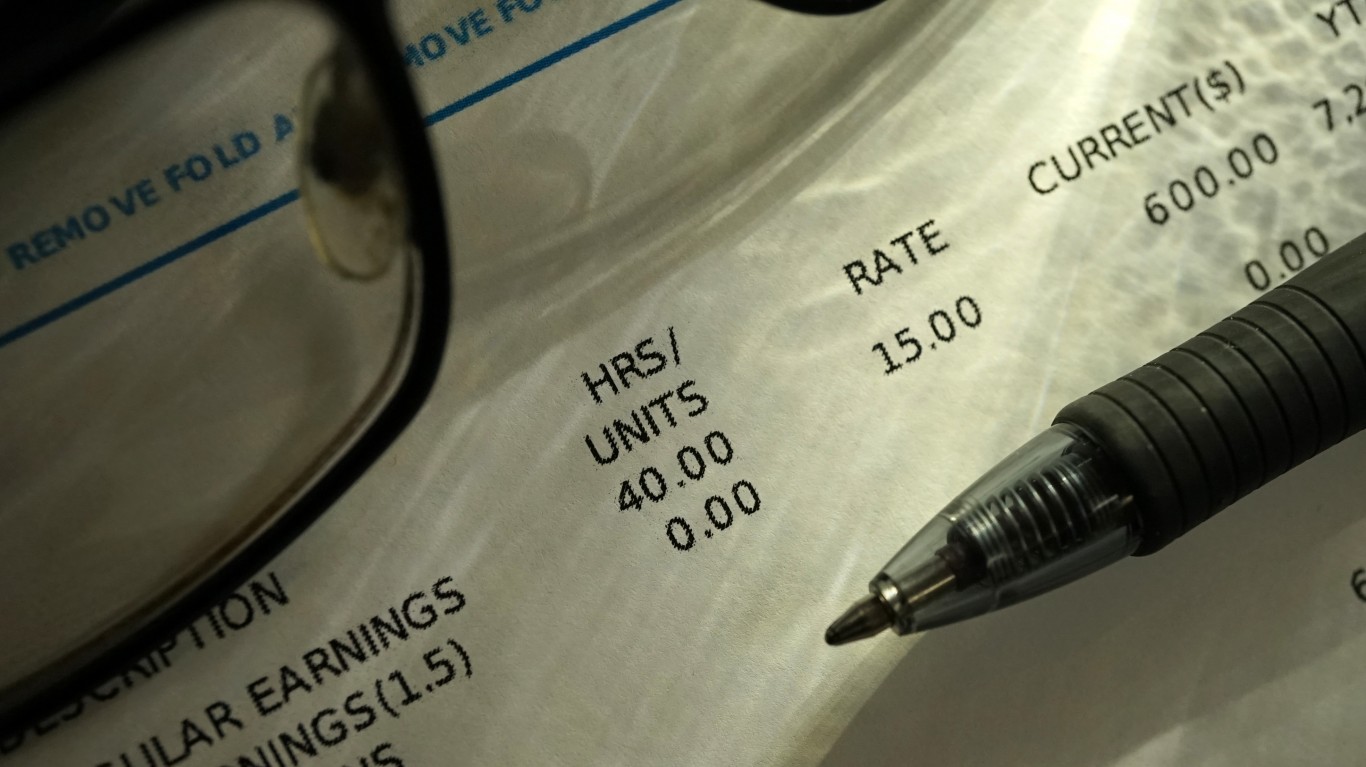
According to the Department of Labor, “Wage garnishment is a legal procedure in which a person’s earnings are required by court order to be withheld by an employer for the payment of a debt such as child support.” The key word here is “court order,” which essentially makes your private business available to anyone or any agency searching the public record. Information about garnishment would also be tracked by the major credit bureaus, which are overseen by the Federal Trade Commission and share their info with government agencies.
11. Tattoos
There are distinctive physical characteristics that have always assisted law enforcement in tracking a criminal. This is why they document and keep track of all features. The body art of anyone who has been incarcerated is most likely tracked on the FBI’s Tattoo Recognition Database.
You may have a clean arrest record but that doesn’t mean your body adornments are not part of public record. The FBI is developing advanced tattoo recognition technology in collaboration with government researchers. That funky design or graceful character that caught your eye may cause law enforcement to connect you with “gangs, sub-cultures, religious or ritualistic beliefs, or political ideology.”
12. Student loan payment status and payment history

Student loan debt is a hard enough burden some incur for years. Just like credit cards and car loans, this information is sent to your credit report, detailing how much you currently owe, what your payment schedule is, and if you’ve missed or made late payments. Your credit report is accessible by government agencies.
The Department of Education’s National Student Loan Data System tracks loan status, enrollment, contact information, and more. In recent years, government agencies have become more efficient at sharing info with other departments, creating detailed “mosaic” portraits with aggregated data, which could include details culled from student loan forms.
13. Education history, including class enrollment
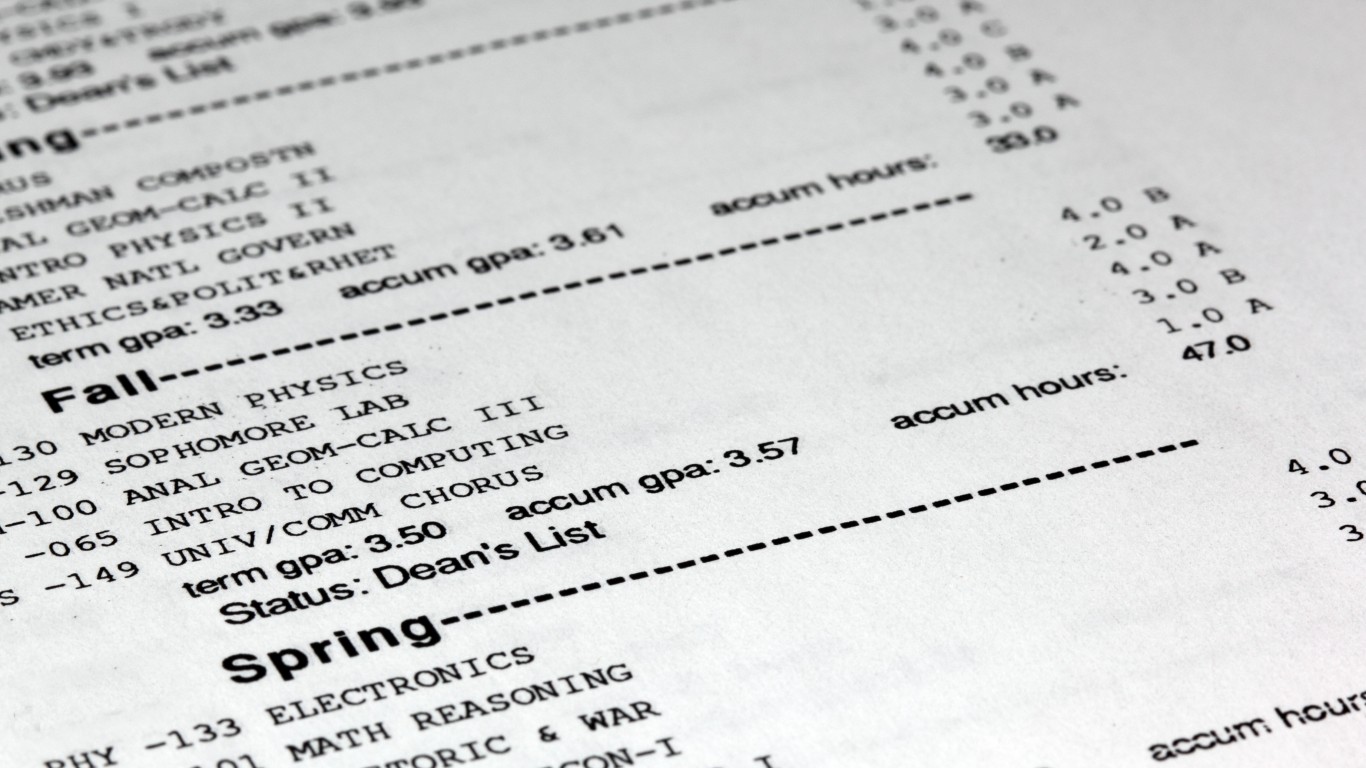
If you are attending or did attend a public school, odds are the government knows what classes you’re taking. Any textbooks you may have ordered or online tutorials you’ve taken can be shared, too, which would give details as to your curriculum. The Department of Education’s National Student Loan Data System likely has your course info, too. Not to worry, they only share it with “individuals that need the information to calculate your future aid eligibility, or to resolve questions about your loans or grants on a need-to-know basis.”
14. Medical history, medications

All those enrolled in federal programs, like Medicare, Medicaid, and disability, have records kept by the Social Security Administration. Should you have a workplace accident that is reported, the Occupational Safety and Health Administration (OSHA), is likely to be on the case. Even though we’ve all signed the HIPAA form at the doctor’s office, that may not keep our medical info as confidential as you’d imagine.
Your medical information may not be as private as you thought. Certain agencies may have access to our records, like law enforcement and child protection agencies. Ordering medications online or even just searching for certain conditions and illnesses are likely to leave a traceable trail in browser histories, which ISPs and others have been known to share with law enforcement and government agencies such as the FBI and NSA. The government is also getting more efficient at inter-agency data sharing.
15. Books read, passages highlighted in e-readers

While e-book sellers such as Amazon may say in their privacy policies that they’ll only give up your private info if presented with a court order, technically there’s no law prohibiting them from sharing that data. If you’re reading on a Kindle or a companion app, Amazon knows what you’re reading, right down to what page you’re on, what you’ve highlighted, your favorite time of day for reading, and any notes you’ve made.
This is why a good old-fashioned book from your local library might be the best option. In all 50 states, a court order is usually required to access your library records. So far only a few states have similar protection for ebooks, so you may decide to make a policy of going straight to the hard copies and studying the old-school way.
16. Travel history

The U.S. government can track more than just your passport activity. With access to flight records, which contain details of every passenger on all flights into or out of a U.S. airport, they can see where you’ve been traveling.
It goes beyond just flights though. License plates can be scanned, revealing the date, time, and location of every car passing by. The National Security Agency can trace your whereabouts, or where you’ve been through Global Cell-Tower Identifiers, which are pinged by the GPS in your car or cell phone. These can be tracked whether you are in a vehicle or on foot, thanks to video cameras installed by the Department of Homeland Security.
17. Laptop camera access

The National Security Agency (NSA) uses a plug-in known as GUMFISH that allows it to take control of the built-in camera in your laptop. They can then take photos and videos unbeknownst to you and without your consent. The world was made aware of the existence of GUMFISH a few years ago, thanks to Edward Snowden.
Just as hackers can access your laptop camera, it is reported that the FBI can also access your laptop camera and former FBI director James Comey has previously mentioned that he takes precautions and covers his laptop camera with tape.
18. Gun ownership

Although there is no national gun registry, prohibited by the Firearm Owners Protection Act, the Bureau of Alcohol, Tobacco, Firearms and Explosives (ATF) has the nation’s only gun tracing facility with its National Tracing Center. Through this tracing facility, the ATF can gather information such as lists of guns reported to the agency as stolen, and unrecovered firearms suspected to be used for criminal purposes.
Sales reports of specific firearms are also compiled by the ATF, allowing them to gather a gun owner’s name and address, and trace gun records that include the retail buyer and seller. Among the data collected are registration records from out-of-business gun stores that include name, address, make, model, serial number, and caliber.
19. Phone records and transcripts

Unless they receive a court order or consent from both parties involved, it’s illegal for the U.S. government to listen to any calls from private cell phones or landlines. This does not, however, apply to collecting information from cell phone metadata. Time, date, location, and phone numbers can be gathered from each party.
In 2013 Edward Snowden revealed that the NSA collected metadata on millions of AT&T, Sprint, and Verizon users. Additionally, there are no restrictions on listening to calls from someone outside the country. Snowden also revealed that the NSA had created a surveillance system that could record 100% of a foreign country’s phone calls and could review them up to a month after they had taken place.
